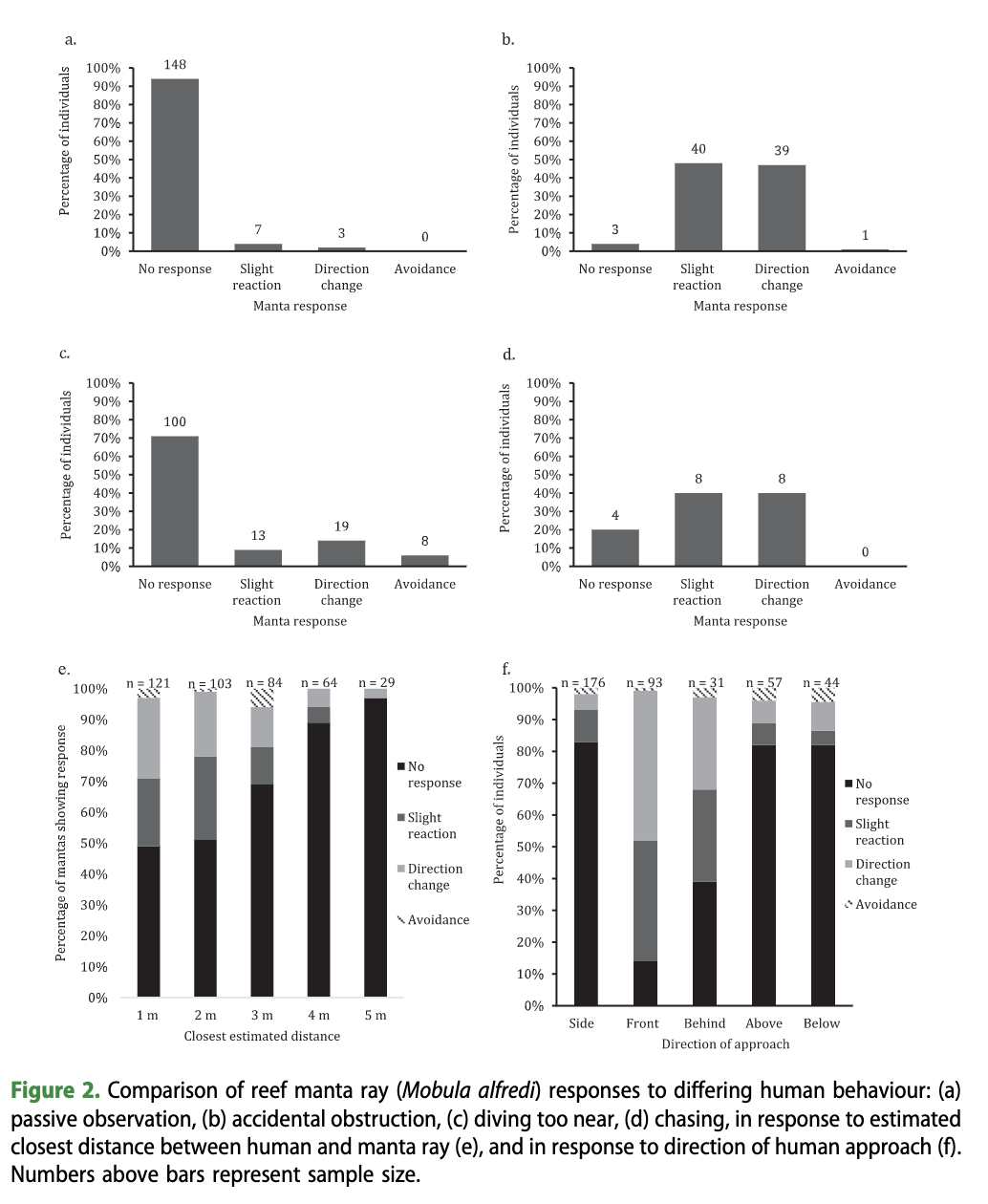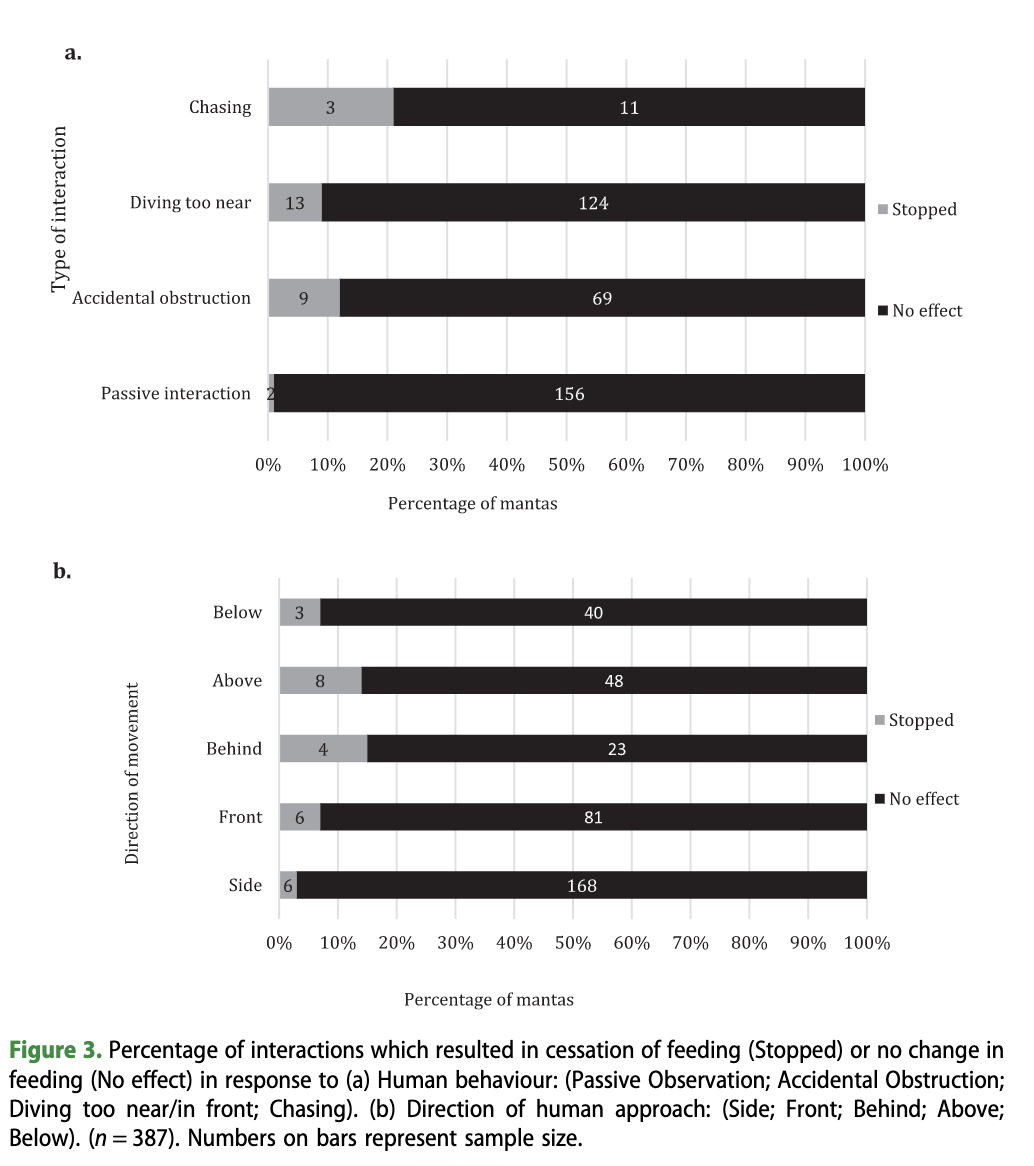Protecting the million-dollar mantas; creating an evidence-based code of conduct for manta ray tourism interactions
September 2019
Annie Murray, Eleanor Garrud, Isabel Ender, Katie Lee-Brooks, Rebecca Atkins, Rebecca Lynam, Kathryn Arnold, Callum Roberts, Julie Hawkins & Guy Stevens
Keywords: Conservation • Maldives • Mobula alfredi • Sustainable Tourism • Wildlife Tourism




Summary: Manta ray tourism contributes $140 million annually to the global economy, and human behaviour can potentially disturb the animals. This study using footage from feeding sites in the Maldives found that only 44% of human-manta interactions complied with existing guidelines, and certain behaviours (obstruction, diving too near/in front, chasing, approaching from the front) negatively affected feeding behaviour. Passive interactions resulted in less disturbance, and interactions within three metres caused increased avoidance behaviours. These findings support existing guidelines and recommend sustainable tourism practices. Visit https://swimwithmantas.org.org for video abstract.
Abstract
“Manta ray tourism is estimated to contribute US$ 140 million annually to the global economy. The multitudes of tourists potentially disturb the animals, yet the effect of human behaviour on feeding manta rays has not been quantified. Using videos collected at feeding sites in the Maldives, we found that only 44% of observed human-manta interactions complied with existing guidelines. Human behaviours; accidental obstruction, diving too near/in front, chasing, and approaching from the front, all had a statistically significant negative effect on behaviour, resulting in feeding cessation, while passive interactions resulted in significantly less disturbance and cessation reactions. Interactions within three metres caused significantly increased avoidance behaviours. These findings support the guidelines provided by the Manta Trusts’ code of conduct, which aims to develop legislation to minimise disturbance by tourism. Our key recommendations aim to ensure that the manta ray tourism industry remains sustainable and non-detrimental to the animals’ natural behaviour. Visit https://swimwithmantas.org for video abstract.”
Author Affiliations
The Manta Trust
Environment Department, University of York
Funded by
Four Seasons Resorts Maldives
Save Our Seas Foundation

